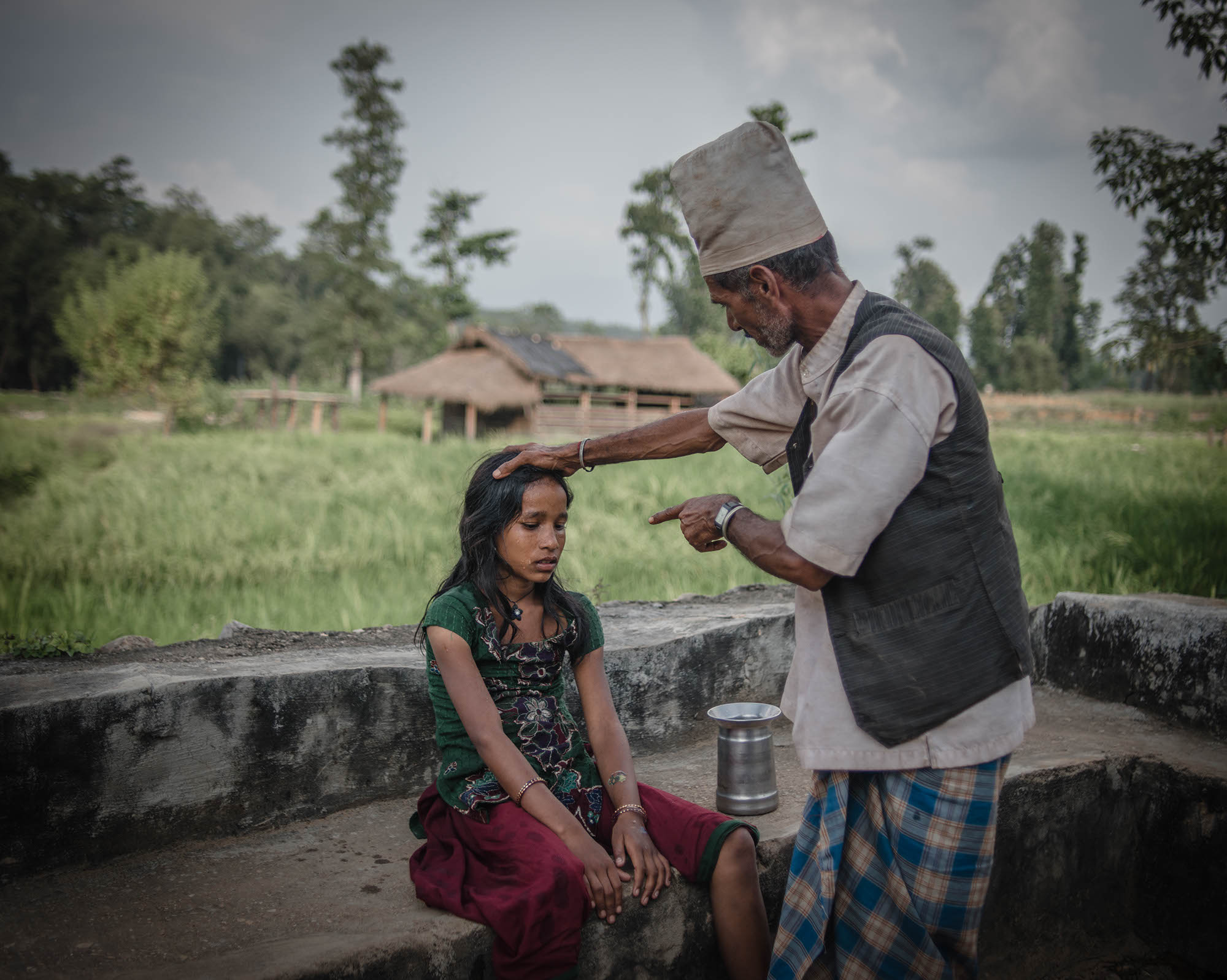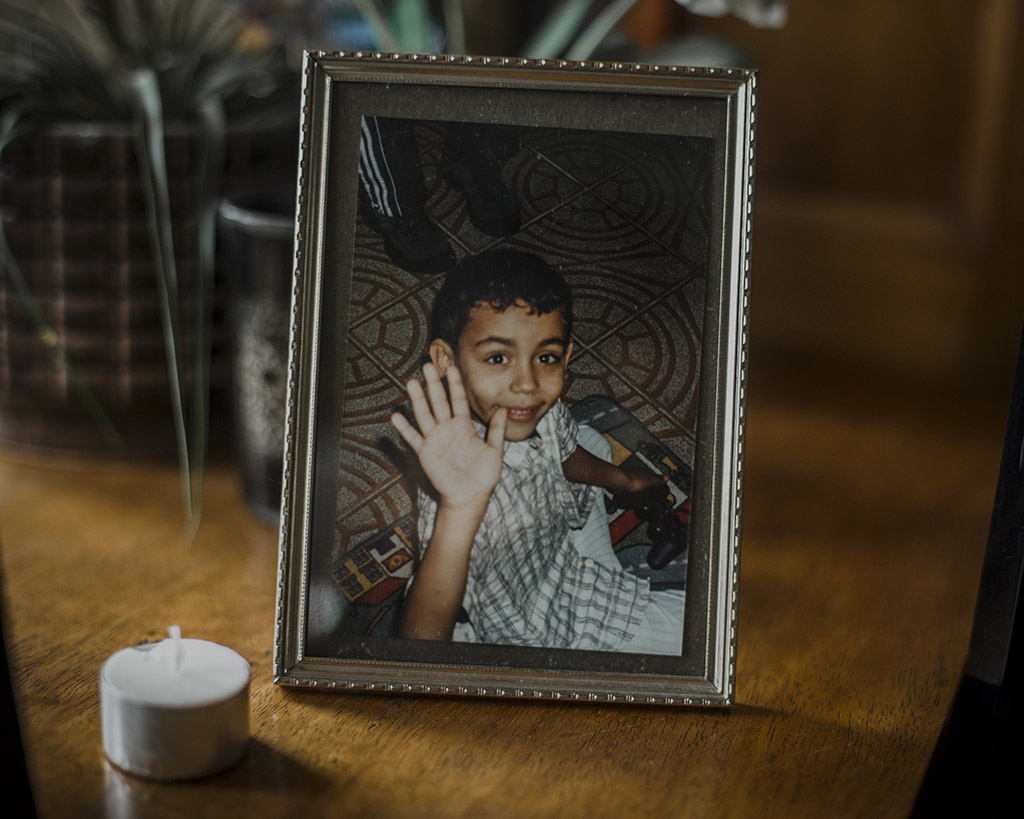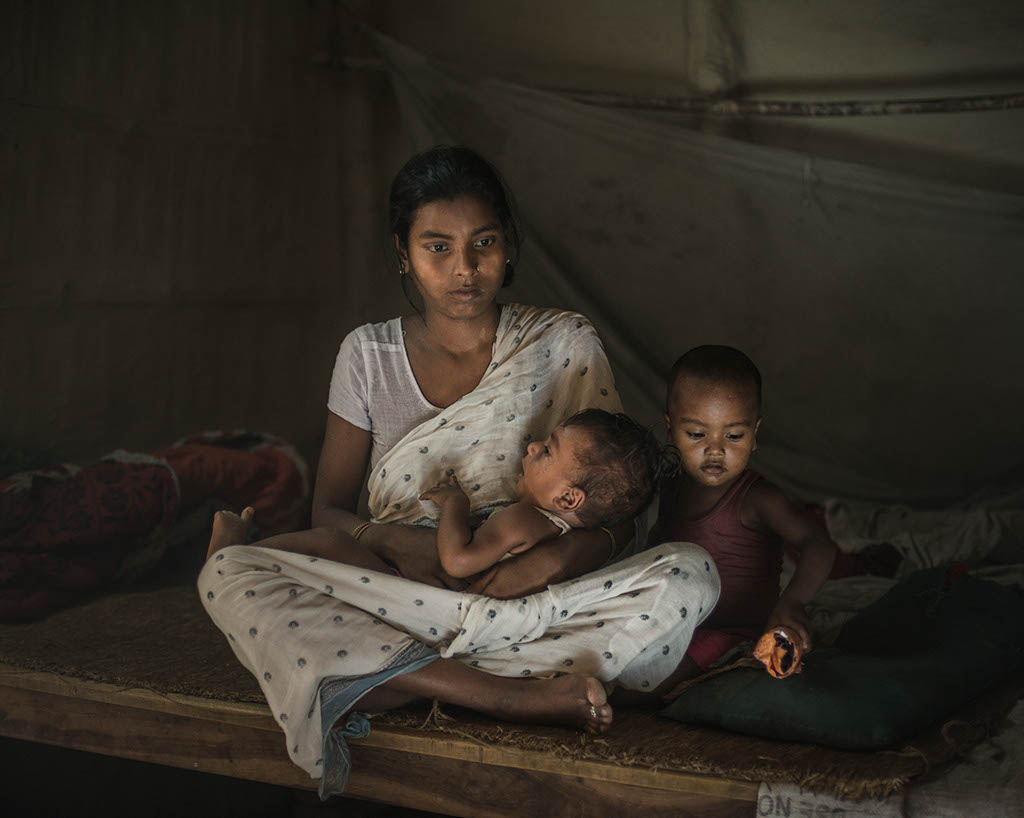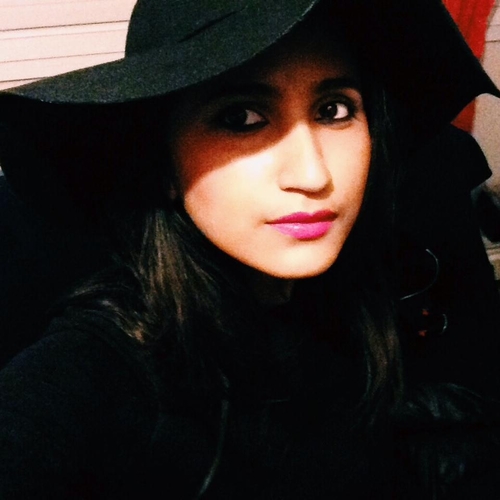
Poulomi Basu discovered the world of photography soon after she left home in Calcutta when she was 21. When her father died in 2002, her mother told her to run away. “Do what you have to,” her mother said. “Don’t get stuck here.” Two years later, after she graduated from college, Basu packed her bags and eventually got admission in a media course. “I was fairly broken,” she reminisced. “My dad had just died. I had left home. During that period of my life I was photographing a lot in Mumbai.”
Now 32, Basu is one of the more prominent names in Indian photography. Over the past decade, she has attended workshops and earned scholarships, and she has won awards and exhibited her work in India, Canada, Brazil, UK, Myanmar, among other countries. Her most recent show was a series in Delhi about the survivors of rape and gender violence. It was a result of The Rape in India Project, a crowd-sourced platform she has started to share photos of sites of rapes to protest against the frequency of sexual assaults in the country.
At a small cafe in Delhi on a warm winter afternoon, dressed casually in a grey sweatshirt, Basu spoke about her journey as a photographer. She mentioned the French photographer Henri Cartier-Bresson as an inspiration and his theory of the decisive moment, of “capturing an event that is ephemeral and spontaneous”. But the game changer for her was Robert Frank, the US photographer most famous for his book The Americans.
“When I saw Frank’s work, it just turned my head around,” Basu said. “Photography for me moved from objective to subjective. It became more about how you photograph people, their emotions. How do you connect with people and tell their story? How do you build a narrative that is also political and social?”

Anjali Kumari Khang is 12 years old. “I am not happy. I do not want to get married. I hope my husband gets a job in a foreign city. Then I can come back to my mother’s home and stay for as long as I want to.” Child marriage is rampant in this north-eastern district of Nepal. Girl children, seen as a burden and an additional mouth to feed, are often married off. However, villagers often marry off their girls before their menstruation starts as it is also a popular belief that if they do so, their immediate family will go to heaven. Einerwa Village, Saptari district, Nepal. Poulomi Basu/’Rituals of Exile’.

Devi Ram Dhamala, a 59-year-old traditional healer, with a young girl. Traditional healers often use extreme verbal and physical abuse to heal young girls who are ill during menstruation or even otherwise, believing they are possessed by evil spirit. Surkhet district, Nepal. Poulomi Basu/’Rituals of Exile’.
Over the past few years, Basu has documented issues relating to gender discrimination and sexual violence through her work. Her Rituals of Exile series, shot in Nepal, portrays the discrimination faced by menstruating women in villages and the plight of child widows.

“Paradise lies At The Feet Of your Mother: The Mothers of Foreign Fighters in Syria.” According to Saliha, this is the most important photograph she has of her son Sabri, who was killed in Syria in December 2013. In this picture, he is saying goodbye: this is how she wants to remember him. Poulomi Basu/VII Mentor.

“Paradise lies At The Feet Of your Mother: The Mothers of Foreign Fighters in Syria.” Martine, from Brussels, whose son died in Syria in February 2014, is seen here. Martine’s son was an 18-year-old high-school dropout who told his mother his Arab surname did not appeal to employers. He was lured by recruiters from radical groups who said they did not care about his lacklustre resume. Poulomi Basu/VII Mentor.
“There are very few things in this world that we can really connect with and good personal work comes from things you connect with,” Basu said. “You need to have that personal drive, but that doesn’t necessarily mean you have to photograph your immediate family or you have to have something tragic happen to you. You just have to find the one thing that moves you, because at the end of the day as a photographer you need to make things that touch your soul.”
Basu finds inspiration in all kinds of places. It could be something she read or heard or a film. She leans forward in her chair excitedly and tries to explain, “You accidentally come across things and then there is this moment where the whole universe just connects. It is so intuitive. There is no way of explaining this, you know? You just know that this is what you want to work on. You believe in this. I have very accidentally been in situations where the stories have just revealed themselves to me. I wish I could explain it.”

Mamata Kumari Mandal, 17, with her two children. One is two years old and the other is six months old. Mamata was married to 30-year-old Shiv Pujan, who was electrocuted while at work in Punjab and died. Einerwa Village, Saptari District, Nepal. Poulomi Basu/’Rituals of Exile’.
Her photography is “quiet”, she says. “If something is dark, I’m not going to shoot it in a dark way,” she said. “I will shoot it in the most banal way and it is up to the viewer to then scratch those layers away. It should make you question things. Clever photography is not the same as photography that moves you. It has to have that magic. I’m constantly looking for that magic. Even in the darkest of places I’m looking for hope, for redemption.”
This is best explained by some of the projects she worked on through an association with the National Public Radio, the American non-profit media organisation. One story of change she discovered through the project was a clinic in a remote part of Jharkhand that offers safe abortion to women who would otherwise resort to risky, often fatal, procedures. Another story took her to a non-profit in Pune, Maharashtra, which teaches young boys to respect their sisters and empowers girls, to end gender discrimination.

Photo-frame of Sheila Vishwakarma, a Kashmiri Pundit at her home in Bazpur, Uttaranchal. September 2009. Poulomi Basu/’To Conquer Her Land’.
In To Conquer Her Land, Basu travelled to the border areas in 2009 to document the lives of women enlisting in the Border Security Force when the force opened up to women for the first time. “It was baffling,” she said. “They were choosing military life over family life. But, at the same time, it was amazing. It was essentially a story of entire villages turning into soldiers. There were times when it was extremely bleak and dark.”
She has also worked on short films on issues such as teen date violence in New York and mental harassment faced by gay people. The dignity of her subject is of utmost importance for the young photographer. She is aware that documentarians have immense power in how they decide to tell a story. They have to let go of their apperceptive backgrounds and step into the shoes of those being photographed.
Basu’s search for stories has taken her to the country’s hinterlands but Chhattisgarh is very special to her. “I can’t keep away from it,” she said. But though she believes it is important to work in your backyard, it is also essential to know how to work in a place with which one isn’t familiar. That is partly why she doesn’t want to box herself as an Indian photographer. Working in places like Italy, the UK, Vietnam and Indonesia has helped her grow. “Suddenly your world just opens up,” Basu said. “I was meeting people who were doing great work. I decided I was not going to put myself in a box. It helped me get over my insecurities about my work.”
Since last year, Basu has been a mentee at VII Photo, an international photo agency, and recently, with photographer CJ Clarke, she launched Just Another Photo Festival to democratise photography by taking it into public spaces, where images wouldn’t usually be displayed. In December, the festival was included in the British Journal of Photography’s “Cool and Noteworthy 2015” list – the first Indian festival ever to feature on that list.
Basu says that photography is the most difficult medium of communication. “It is the most intrusive,” she said. “You have to pack in every element in one picture – the political and social layers, the human aspect, the psychological and emotional state of mind – how the hell can it be easy?” But she has no regrets about her chosen profession. “The reason I am a photographer is because no other profession would have allowed me to meet so many people from different walks of the world. I’m incredibly lucky to be a photographer,” she said. “I feel like there is no other way I would have experienced so much otherwise.”

Photographer Poulomi Basu
[“source-scroll”]
